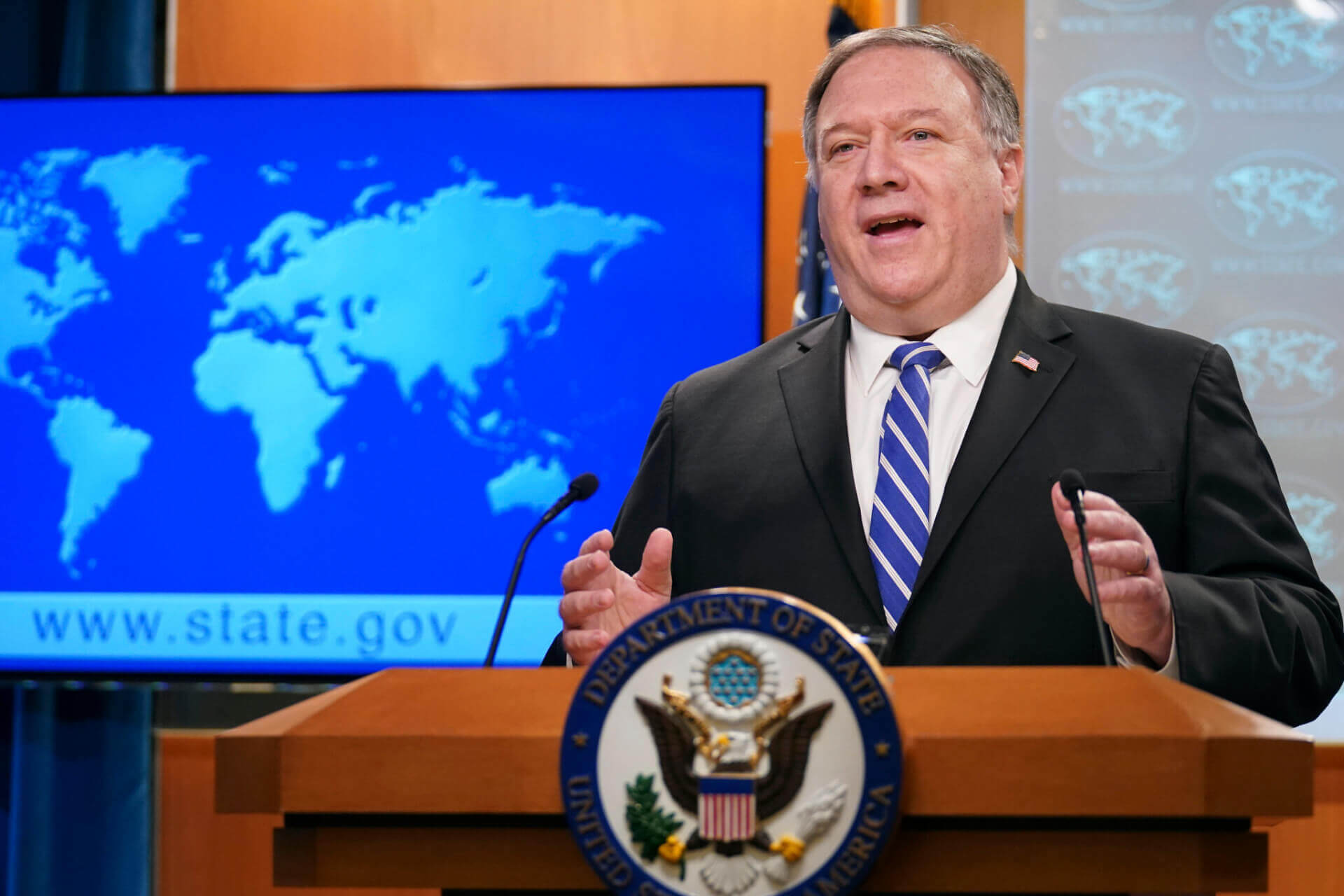United States (US) Secretary of State Mike Pompeo issued a stern rebuke of the International Criminal Court’s (ICC) investigation into war crimes in Afghanistan. In fact, President Donald Trump signed an executive order that imposed sanctions on all ICC employees involved in the Afghanistan case by blocking their assets and their entry into the US. Pompeo added that these travel restrictions could also extend to family members of ICC officials.
The US is not a signatory of the ICC and its Rome Statute, and does not acknowledge its authority over American citizens. In fact, before Trump signed the executive order on Thursday, Pompeo warned, “We cannot, we will not stand by as our people are threatened by a kangaroo court.” Attorney General William Barr took aim at Russia, suggesting that the investigation into war crimes in Afghanistan is part of a Russian agenda. Secretary of Defense Mark Esper added, “Rest assured that the men and women of the United States armed forces will never appear before the ICC, and nor will they ever be subjected to the judgments of unaccountable international bodies.” Meanwhile, National Security Adviser Robert O’Brien said, “United States government military justice systems are far more effective at holding Americans accountable than the ICC ever has been or ever will be, and we will never allow our American soldiers, sailors, airmen and Marines to fall into the jurisdiction of that purported court.”
The ICC has responded by criticizing the US’ “unacceptable attempt to interfere with the rule of law” by aiming to ‘influence’ the “actions of ICC officials”. The court added, “An attack on the ICC also represents an attack against the interests of victims of atrocity crimes, for many of whom the Court represents the last hope for justice.”
In its inquiry, ICC prosecutor Fatou Bensouda is likely to investigate the actions of the Taliban, the Afghan government, and US troops between 2003 and 2014, including attacks on civilians, imprisonment, and extra-judicial executions. The current investigation dates back to November 2017, when the ICC’s prosecutor first announced the court’s intention to investigate war crimes in Afghanistan. It is expected to build on evidence gathered during a 2016 report, when the ICC said there was “reasonable basis to believe the US military had committed torture at secret detention sites operated by the CIA”. In fact, the report also adds that the Afghan government had also tortured prisoners and committed various war crimes against civilians. Thus, it is hardly surprising that Afghanistan has also voiced its opposition to the probe, despite being a signatory to the ICC.
Trump’s reticence to open US troops up to inquiry is hardly a new phenomenon. In fact, he has previously pardoned multiple troops for alleged war crimes. Moreover, he began sanctions on ICC officials as early as last year.
The Trump administration’s latest sanctions have drawn international scrutiny. For instance, the Netherlands’ Foreign Minister, Stef Block said he was “very disturbed” by the US’ opposition to the ICC, describing the court as crucial in the fight against impunity”. The European Union (EU) Minister for Foreign Affairs, Josep Borrell also expressed “serious concern” at the US’ measures, saying, “The court has been playing a key role in providing international justice and addressing the gravest international crimes.”
Last month, Pompeo also warned the ICC that the US would “exact consequences” if it pressed ahead with investigations into crimes against Palestinians in the West Bank and the Gaza Strip. He said at the time, “As we made clear when the Palestinians purported to join the Rome Statute, we do not believe the Palestinians qualify as a sovereign state, and they therefore are not qualified to obtain full membership, or participate as a state in international organisations, entities or conferences, including the ICC.” In truth, Bensouda’s investigation is also looking into crimes committed by Palestinian groups by Hamas.
After the Rome Statute was adopted in 1998, the ICC came into force in 2002, and was established to prosecute individuals for genocide, crimes against humanity, war crimes, and the crime of aggression.
US Imposes Sanctions Against ICC Officials For Investigating Afghanistan War Crimes
Trump signed an executive order that blocks their assets and entry into the US.
June 12, 2020

IMAGE SOURCE: KEVIN LAMARQUE / APUS Secretary of State Mike Pompeo
